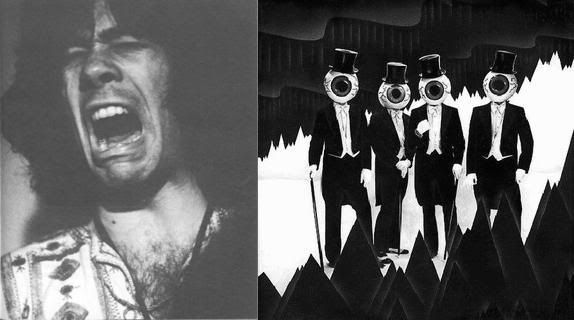/PAlogo_v2.gif)
/PAlogo_v2.gif) |
|
Post Reply 
|
Page 123 4> |
| Author | ||||||
Equality 7-2521 
Forum Senior Member 

Joined: August 11 2005 Location: Philly Status: Offline Points: 15784 |
 Topic: The Greatest Mathematician? Topic: The Greatest Mathematician?Posted: July 02 2008 at 08:42 |
|||||
|
Of course my choosing of Mathematicians was very subjective and my reasoning for excluding Cantor would probably be that besides his beginnings in number theory, his work was exclusively directed towards Set Theory. Of course then you could look at Fermat being on the list and say the same, but I included him just because of my obsession with his theorems.
Honestly, I don't know how Fourrier made the cut especially with Cauchy omitted. |
||||||
|
"One had to be a Newton to notice that the moon is falling, when everyone sees that it doesn't fall. "
|
||||||
 |
||||||
WinterLight 
Forum Senior Member 
Joined: June 09 2008 Status: Offline Points: 424 |
 Posted: July 02 2008 at 08:24 Posted: July 02 2008 at 08:24 |
|||||
Very close to compelling argument. However, there are some subtleties to discuss. We should reply "zero apples" because we were asked about the number of apples (in technical jargon, the cardinality of the set of all apples on the table). This is a well-defined concept (assuming that "apple" and "table" have sufficiently clear meaning, which I think they do for practical purposes). Now you're completely correct to say that there are zero pears, cherries, etc., but those responses, while true, are irrelevant to the question posed. The cornerstone of scientific investigation is the isolation of variables of particular interest. Of course, one might argue (with some legitimacy I think) that this is not a natural, but rather an acquired or learned, method of discovery or thinking. Moreover, you are right to assert that "zero... is a pure mathematical concept" rather than something we "encounter in the world of things." Yet this can be said of every number (have you ever seen a concrete "7" in reality, notwithstanding Sesame Street, of course?). As physics models rather than describes reality, so does mathematics model. I know a lot of this sounds like hairsplitting semantics, and practically it is, but these subtleties are crucial in precise and accurate reasoning about mathematics (or any other topic, especially abstract ones). |
||||||
 |
||||||
Sacred 22 
Forum Senior Member 

Joined: March 24 2006 Status: Offline Points: 1509 |
 Posted: July 02 2008 at 03:32 Posted: July 02 2008 at 03:32 |
|||||
Was it ever, it gave rise to "ON and OFF" and the binary number system we are all virtually slaves to. It makes Prog Archives possible.
|
||||||
 |
||||||
Visitor13 
Forum Senior Member 
VIP Member Joined: February 02 2005 Location: Poland Status: Offline Points: 4702 |
 Posted: July 02 2008 at 03:14 Posted: July 02 2008 at 03:14 |
|||||
Yeah, right  http://www.youtube.com/watch?v=3xewJOKyyoc |
||||||
 |
||||||
BaldFriede 
Prog Reviewer 

Joined: June 02 2005 Location: Germany Status: Offline Points: 10266 |
 Posted: July 01 2008 at 15:37 Posted: July 01 2008 at 15:37 |
|||||
|
Let me just remark something: Today we don't have many problems thinking about the number zero; we are used to it. But to people in former times the zero was not an easy concept. Let me give you an example. There are three apples lying on the table. If all three are eaten, how many apples remain? You will say "zero of course", but there are also zero pears, zero cherries, zero peaches and zero pineapples, to name but a few of the millions of things of which there are zero. Why the heck should we especially name zero apples? Just because there had been three before?
No, "zero" is not a concept we encounter in the world of things, it is a pure mathematical concept. Which is why the invention of this number was so very important for mathematics. |
||||||
 BaldJean and I; I am the one in blue. |
||||||
 |
||||||
BaldFriede 
Prog Reviewer 

Joined: June 02 2005 Location: Germany Status: Offline Points: 10266 |
 Posted: July 01 2008 at 10:53 Posted: July 01 2008 at 10:53 |
|||||
 See my slightly extended post. See my slightly extended post. |
||||||
 BaldJean and I; I am the one in blue. |
||||||
 |
||||||
WinterLight 
Forum Senior Member 
Joined: June 09 2008 Status: Offline Points: 424 |
 Posted: July 01 2008 at 10:42 Posted: July 01 2008 at 10:42 |
|||||
|
||||||
 |
||||||
BaldFriede 
Prog Reviewer 

Joined: June 02 2005 Location: Germany Status: Offline Points: 10266 |
 Posted: July 01 2008 at 10:30 Posted: July 01 2008 at 10:30 |
|||||
Edited by BaldFriede - July 01 2008 at 10:51 |
||||||
 BaldJean and I; I am the one in blue. |
||||||
 |
||||||
WinterLight 
Forum Senior Member 
Joined: June 09 2008 Status: Offline Points: 424 |
 Posted: July 01 2008 at 10:21 Posted: July 01 2008 at 10:21 |
|||||
I've never cared much for analysis as I simply don't have the intuition for it. My interests are in the foundational aspects of math (set theory, logic, etc.). To my understanding, though, electrical engineers are generally perceived as the most "mathematical" of engineers since they use some fairly sophisticated techniques. Edited by WinterLight - July 01 2008 at 10:24 |
||||||
 |
||||||
Padraic 
Special Collaborator 

Honorary Collaborator Joined: February 16 2006 Location: Pennsylvania Status: Offline Points: 31169 |
 Posted: July 01 2008 at 09:58 Posted: July 01 2008 at 09:58 |
|||||
|
Good to see a real mathematician hanging out here...I'm just a simple electrical engineer who once had aspirations at taking real analysis.

|
||||||
 |
||||||
WinterLight 
Forum Senior Member 
Joined: June 09 2008 Status: Offline Points: 424 |
 Posted: July 01 2008 at 09:46 Posted: July 01 2008 at 09:46 |
|||||
|
||||||
 |
||||||
moreitsythanyou 
Forum Senior Member 

VIP Member Joined: April 23 2006 Location: NYC Status: Offline Points: 11682 |
 Posted: July 01 2008 at 01:00 Posted: July 01 2008 at 01:00 |
|||||
|
Lagrange has no votes and it should remain that way. Damn remainder formula.
|
||||||
 <font color=white>butts, lol[/COLOR] <font color=white>butts, lol[/COLOR] |
||||||
 |
||||||
rileydog22 
Forum Senior Member 
Joined: August 24 2005 Location: New Jersey Status: Offline Points: 8844 |
 Posted: July 01 2008 at 00:59 Posted: July 01 2008 at 00:59 |
|||||
|
Leibniz>Newton at mathematics alone IMO.
Of course, it's impossible to top Newton's achievements when you include physics and other achievements outside of "pure mathematics." |
||||||
  |
||||||
 |
||||||
Statutory-Mike 
Forum Senior Member 

Joined: February 15 2008 Location: Long Island Status: Offline Points: 3737 |
 Posted: July 01 2008 at 00:42 Posted: July 01 2008 at 00:42 |
|||||
|
I'm voting for Sir Issac Newton, because he's one of the only mathmaticians I am actually familiar with
|
||||||

|
||||||
 |
||||||
stonebeard 
Forum Senior Member 

Joined: May 27 2005 Location: NE Indiana Status: Offline Points: 28057 |
 Posted: July 01 2008 at 00:20 Posted: July 01 2008 at 00:20 |
|||||
|
This thread may give me nightmares.
Math is apparently good. Numbers larger than 1,000 are likely to give me anxiety attacks (as well as anything less than -10, irrational, imaginary, or anything that has a letter or symbol to represent it). Edited by stonebeard - July 01 2008 at 00:25 |
||||||
 |
||||||
Equality 7-2521 
Forum Senior Member 

Joined: August 11 2005 Location: Philly Status: Offline Points: 15784 |
 Posted: June 30 2008 at 23:06 Posted: June 30 2008 at 23:06 |
|||||
|
Ramanujan is indeed special but I didn't include him because while I feel he certainly had the natural ability to contend with those on the list, his output and importance of his results were hurt by his severe lack of training. If he had been born into more fortunate circumstances he certainly would be on the platform as all of these men, but unfortunately it was not so.
As a sidenote: There's a great biography written about him, which is fascinating even for those who aren't interested in math, called The Man WHo Knew Infinity by Kanigel. Check it out. |
||||||
|
"One had to be a Newton to notice that the moon is falling, when everyone sees that it doesn't fall. "
|
||||||
 |
||||||
clarke2001 
Special Collaborator 

Honorary Collaborator Joined: June 14 2006 Location: Croatia Status: Offline Points: 4160 |
 Posted: May 20 2008 at 09:17 Posted: May 20 2008 at 09:17 |
|||||
My vote went for Euler. But Ramanujan is...special. 
|
||||||
 |
||||||
Padraic 
Special Collaborator 

Honorary Collaborator Joined: February 16 2006 Location: Pennsylvania Status: Offline Points: 31169 |
 Posted: February 19 2008 at 11:15 Posted: February 19 2008 at 11:15 |
|||||
It is of the utmost importance in engineering, where the general formula is used all the time: e^(ix) = cos(x) + i*sin(x) so that for x=pi you get the formula quoted above. |
||||||
 |
||||||
BaldFriede 
Prog Reviewer 

Joined: June 02 2005 Location: Germany Status: Offline Points: 10266 |
 Posted: February 19 2008 at 11:08 Posted: February 19 2008 at 11:08 |
|||||
|
The most beautiful formula in mathematics, however, is eiπ + 1 = 0. It combines the five most important numbers in mathematics in one formula:
0 is the neutral element of addition and thus one of the basic numbers of mathematics. Interestingly it took mankind some time to "discover" this number; its discovery was one of the most important breakthroughs in mathematics. 1 is of course equally important, being the neutral element of multiplication and the basis of all counting. π is of course the most important number in geometry and trigonometry. It is approximately 3.14159265359...., a non-periodic decimal fracture. It is defined as the ratio of a circle's circumference and its diameter. e is just as equally important in calculus as π is in geometry. It is the basis of natural logarithm; it's value is approximately 2.7182818284590... i is the square root of -1. Some people may say "you can't draw the square root out of a negative number", but mathematicians invented a new kind of numbers for that, the so called "imaginary numbers". Their basis is i; it is the square root of -1. It is very important for solving polynomials. These five numbers are probably the five most important numbers in mathematics. To see them combined in one formula, together with the three basic arithmetic operations (addition, multiplication, exponentiation; subtraction, division and extracting roots are merely the inverses of these operations), is sheer beauty. |
||||||
 BaldJean and I; I am the one in blue. |
||||||
 |
||||||
MikeEnRegalia 
Special Collaborator 

Honorary Collaborator Joined: April 22 2005 Location: Sweden Status: Offline Points: 21819 |
 Posted: February 19 2008 at 09:05 Posted: February 19 2008 at 09:05 |
|||||
|
^ Mathematicians and those who know Google ...
 I never liked mathematics ... one wonders how I got my degree in computational science.  |
||||||
 |
||||||
Post Reply 
|
Page 123 4> |
| Forum Jump | Forum Permissions  You cannot post new topics in this forum You cannot reply to topics in this forum You cannot delete your posts in this forum You cannot edit your posts in this forum You cannot create polls in this forum You cannot vote in polls in this forum |